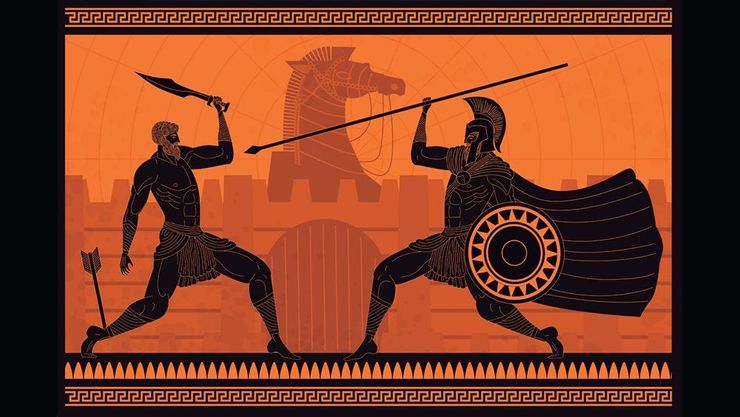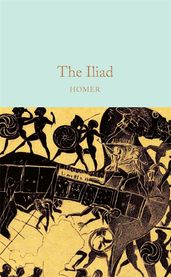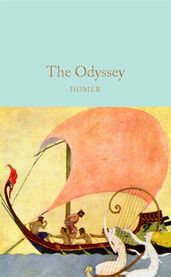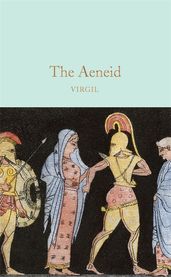Classical literature: Everything you want to know but are afraid to ask
The Iliad, The Odyssey and The Aeneid are three of the most famous pieces of literature in history. If you want to get the basics under your belt before you begin reading, here’s our guide to who’s who, and what’s what in the classical world . . .

The Iliad and The Odyssey were written in Ancient Greek, The Aeneid in Latin, and all are written in dactylic hexameter. Homer is accredited as the author of both The Iliad and The Odyssey, although, nobody really knows who Homer was. Debate continues to this day about whether The Iliad and The Odyssey were composed by one poet or whether they were actually more of a ‘team effort’, an oral poetic project ranging over many years in the 8th century BC and worked on by multiple poets. Virgil was an Ancient Roman poet who lived under Emperor Augustus around 70–19BC. He died before finishing The Aeneid, which was published shortly after his death.
The Gods
Gods in the classical world are characters in and of themselves. They have full personalities, their own allegiances to the humans below and to each other, and they are prone to the same emotions as mortals: jealousy, love, anger, sadness. All the gods have two names depending on whether they are being referred to by Greeks or Romans. Immortals who play a big part in all three poems are: Hera/Juno, the wife of Zeus/Jupiter who supports the Greeks in the Trojan War; Poseidon/Neptune, the god of the sea who makes Odysseus’ life very difficult in The Odyssey; Athena/Minerva, goddess of wisdom and war and another supporter of the Greeks, who comes to Odysseus’ aid throughout The Odyssey; and Aphrodite/Venus, goddess of love, who is forever watchful of her son, Aeneas, both on the battlefield and on his journey to found Rome.
The Trojan War
This conflict was between the Trojans and the Greeks and was estimated to have taken place in the 12th or 13th century BC – it lasted for ten years. The war started when Paris, a Trojan prince, stole Helen from her husband Menelaus, the king of Sparta. A colossal Greek army set sail for Troy, led by Agamemnon. Famous faces on the Greek side include Achilles, the greatest warrior of the war and a demi-god; Patroclus, Achilles’ closest companion; and Odysseus, king of Ithaca, whose ten-year return journey is the story of The Odyssey. The Trojans boast their own heroes: Hector and Paris, princes and sons of Priam, the king of Troy; and Aeneas, the son of Aphrodite who goes on to found Rome in The Aeneid. The Iliad describes the final weeks of this legendary war.
The aftermath
When the Trojan War ends – Troy has fallen and the Greeks are victorious as a result of Odysseus’ wooden Trojan Horse – two storylines take off contemporaneously: Odysseus’ attempt to return home to Ithaca, and Aeneas’ quest to found Rome.
The Odyssey is packed full of some of the most famous mythological exploits in Classics: Odysseus’ encounter with Circe, who turns his men into pigs; his outwitting of the one-eyed Cyclops; his journey into the Underworld where he comes face to face with old friends and the navigation of the violent monster Scylla and the deadly whirlpool Charybdis. Odysseus spends ten years trying to reach Ithaca, eventually reuniting with his wife Penelope and son Telemachus, and regaining control of his palace.
The Aeneid depicts Aeneas’ escape from the burning city of Troy with his father, Anchises, and young son Ascanius. It has been foretold that he will build a new city in Italy, but it’s not going to be smooth sailing, despite his goddess mother’s protection. Along the way, Aeneas lands in Carthage, an African city ruled by Queen Dido, whose amorous encounter with Aeneas ends in tragedy. Aeneas endures the death of his father and, like Odysseus, must also travel to the Underworld, before finally reaching Italy and surviving one last battle before Rome can be founded.
The Iliad
by Homer
The Iliad has inspired writers, artists and classical composers through the ages with its story of the Trojan War. When Paris, a Trojan Prince, wins Helen as a prize for judging a beauty contest between the goddesses, the Greeks sail to Troy and besiege the city. The Iliad is set during the tenth year of the war. With themes of war, rage, grief and love, the epic remains powerful and enthralling more than 2,700 years after it was composed.
The Odyssey
by Homer
The tale of Odysseus’s epic journey home, The Odyssey is perhaps Western literature’s first adventure story. On the way, the hero encounters giants, sorceresses, sea-monsters and sirens, while his wife Penelope awaits his return. This Macmillan Collector's Library edition uses a translation by T. E. Lawrence, now remembered as 'Lawrence of Arabia' and the author of Seven Pillars of Wisdom. It is recognized as the first translation to be both faithful to the original text and written in accessible language.
The Aeneid
by Virgil
The Aeneid is the epic tales of Aeneas, a Trojan hero, who flees Troy after its fall with his father and young son. Aeneas is destined to found the city of Rome, but he must first prove his worth and attain the maturity for such a task. He battles raging storms in the Mediterranean, encounters the fearsome Cyclopes, falls in love with Dido, Queen of Carthage, travels into the Underworld and wages war in Italy.
For more classic literature check out the best translated classics, or why not bring ancient Greece into the modern world with the best Greek mythology books.





